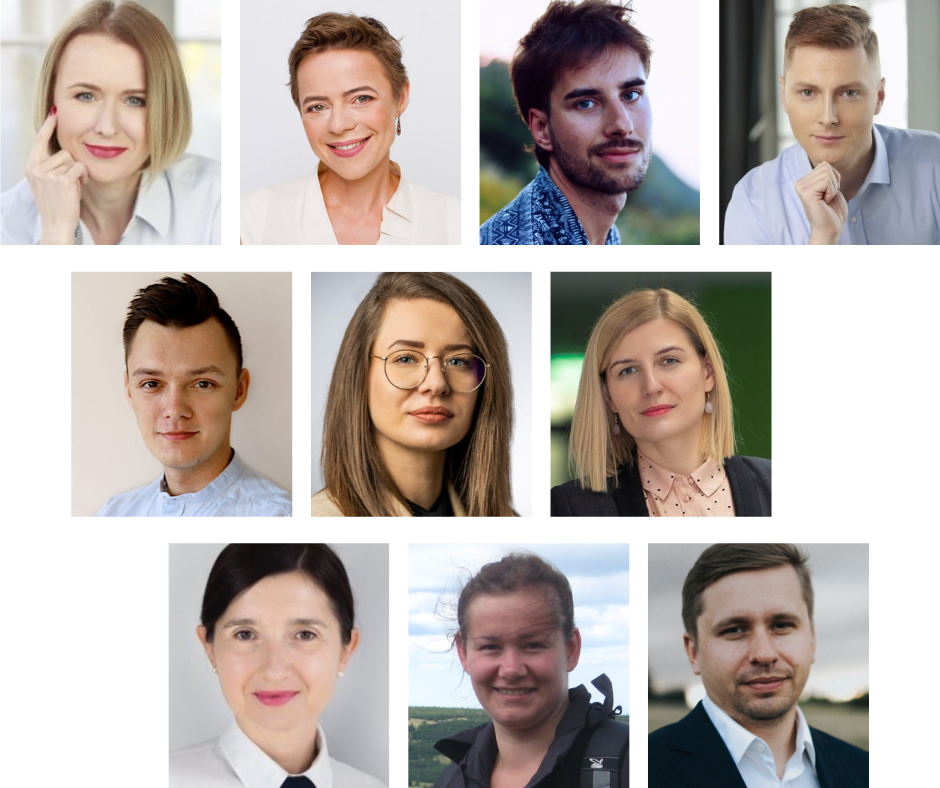The new term of the Centre for Sustainable Development 2024-2028 coincides with the end of the 2030 Agenda’s political dimension, in which many sustainable development activities will be accelerated, many of the solutions developed will be anchored in legislation and policies, and declarations and positions on sustaining the solutions developed will be created. Discussions will also begin on how we can continue to address global challenges beyond 2030. Universities have invariably been recognised as institutions with great potential to achieve the Sustainable Development Goals due to their role in knowledge creation and transfer and links between local and supra-local communities. In creating the Centre for Sustainable Development’s work plan for 2024-2028, we have taken these issues into account.
Our plans are firmly rooted in global trends and activities, even more firmly in the European Union’s actions for sustainable development, but above all in our university ambitions to strive for a sustainable, green University of Gdansk in the systemic sense of the word. We want to continue to work to raise awareness among our students and stakeholders, educate and disseminate the results of activities that are the result of the work of the entire University of Gdansk community, both scientific, teaching and implementation. Over the past four years, researchers, teaching and administrative staff, as well as students and PhD students from all our faculties and units, have shown their great commitment to make this goal more feasible. This is evidenced by the increase in the number of research and development projects involving the theme of sustainability, departmental teaching and popular science activities and individual initiatives by staff and students. These activities we want to promote nationally and internationally. We will also continue the University Conversations on Sustainability programme to this end.
We will continue to develop the Green University of Gdansk programme, which in the new term will focus even more on our activities, for which we are responsible in the European consortium SEA-EU 2.0. Under Task 4.4 Goes Greener, we will create institutional solutions, which we will continue after the end of the project as a result of the cooperation of nine coastal universities. We are preparing to sign a joint Green Charter declaration in 2026, in which we want to commit ourselves as our entire consortium to continue working towards sustainability. Working out the content of this declaration will require negotiating and describing a shared ambition. And we consider this task to be strategic for this programme.
We will invite the youngest students to co-create the Green University to a greater extent than before. We have prepared a series of discussion meetings, exhibitions and podcasts aimed at first-year students. Therefore, we will link the Internship programme with the Education for Sustainable Development programme, which, in addition to the further development of thematic postgraduate courses aimed at employees of local government units, small and medium-sized enterprises, NGOs and public institutions, will have an educational component aimed at students. We also hope to implement so-called BIPs (Blended Intensive Programmes), which use innovative ways of learning and teaching thematically covering the challenges of sustainable development. They also provide an opportunity for international contacts between the students we want to invite to the Centre for Sustainable Development. We look forward to a deeper collaboration with the Centre for Student and Doctoral Activities, with which we have been able to realise many joint activities in recent years.
Of the new plans and of note are the research and development programmes that have grown out of our three existing programmes: Culture (for) Sustainable Development, Projects and Research and International Cooperation. The first two will be transformed into the Energy Transition Lab and the More-than-human Studies Lab. Both will have an international dimension focused on networking with institutions and research teams working on similar issues around the world. A large part of the activities under both programmes will be the implementation of international projects funded by Horizon Europe and Interreg. We will disseminate the recommendations and solutions developed, as well as the results of the research, on our website and in social media. We plan to invite guests and students for discussions and to integrate the topics of energy transition and new directions of humanities research relating to sustainability into theses.
Our new programme will be the Migration Observatory. This initiative was developed largely in response to the expectations of our stakeholders and institutional partners. The Observatory aims to monitor and analyse migration processes on a local, regional and national scale. Its task will be to provide reliable data, expert opinions, reports and analyses commissioned by public authorities, NGOs and the private sector. The Observatory is scheduled to be inaugurated on 25 October.
As part of the Cooperation with the Social Environment programme, develop activities to promote the social economy. In 2026, our Centre will host an international convention of the Living Knowledge Network. The social economy plays a key role in building a sustainable and inclusive society, combining social and economic goals.
We would like to thank everyone who supports our activities, collaborates with us and inspires us to take new initiatives. It is impossible to mention everyone thanks to whom the Centre is growing. Therefore, we can say with certainty that it is not a classic administrative university-wide unit, but a platform for sharing and cooperation between scientists, administration, students, doctoral students and our external partners (institutions, local authorities, business and scientific and non-governmental entities) with the support of the rectoral and faculty authorities. And for this we have great satisfaction and motivation to work.
We look forward to welcoming all those interested in cooperation at the Faculty of Social Sciences of the University of Gdansk, at 4 Bażyński Street, room D208, and to following our website www.czrug.ug.edu.pl and social media.
dr hab. Sylwia Mrozowska, prof. UG
Director of the Centre for Sustainable Development, University of Gdansk


